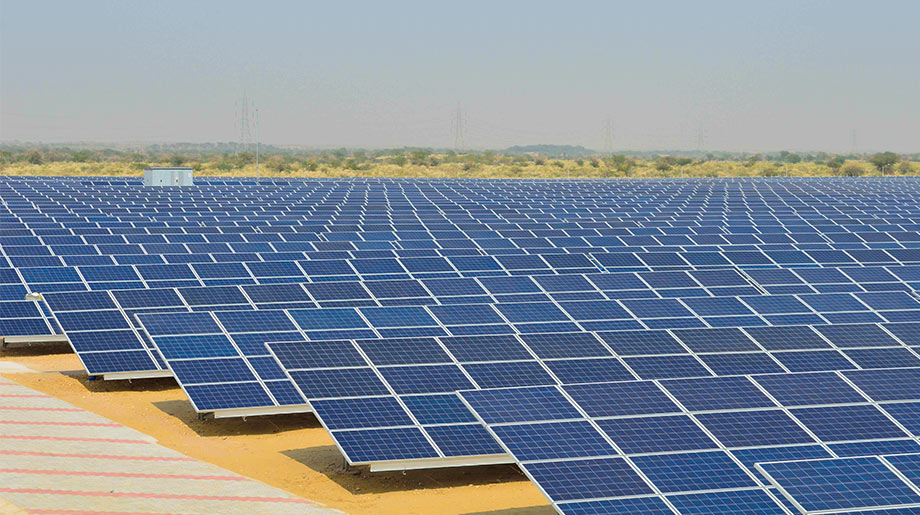Renewable Energy Through Photovoltaics in Rajasthan in India

Project type: Solar
Project location: India, Rajasthan, district of Jodhpur
Project status: In operation, credits available
Annual emission reduction of the whole project: 40,191 t CO2
In this climate protection project in India, solar power is produced by photovoltaic systems. The two systems installed feed renewable power into the electricity network and help to improve the power mix in India, which typically comes from nuclear and coal-fired power stations. In addition, the project owners are working on location to ensure better access to critical infrastructure.
In India, electricity is largely produced using cheap fossil resources such as coal and gas or in nuclear power plants. As these energy sources emit high greenhouse gas emissions or involve waste products being stored in a way that is as yet uncertain, they are considered to be unsustainable solutions. The construction of the photovoltaic plant in Sanwreej, a village in the state of Rajasthan, means that part of the fossil-fuel-dominated energy mix is being replaced by renewable solar power. For this purpose, two plants were constructed with a total capacity of 20 megawatts, which feed the electricity generated into the national power network and so reduce the need for fossil energy sources.
Improvements to the Local Quality of Life and the Creation of Jobs
Sanwreej is a village with 615 households and 3720 inhabitants. Over 40 per cent are illiterate. In addition to climate protection, the project owners on location are working to ensure better access to important infrastructure. This includes the construction and equipping of basic healthcare facilities, schools for children and young people, and systems for the treatment of drinking water. The infrastructure provided improves the quality of life and education in the village.
Alongside the benefits provided by the infrastructure, the project also strengthens the local economy and offers social opportunities. The operation and maintenance of the solar panels requires 34 permanent posts. These employees are trained and further educated through annual training sessions. The construction of the plant also created a lot of temporary jobs. In addition, the project partner is committed to equal pay for men and women and is creating work opportunities for people with disabilities.
This project contributes to 4 SDGs (as of end 2021):
Find out how myclimate reports these SDGs in our FAQ.
The following SDGs are verified by the Gold Standard:
In 2019, the project produced 41,108 MWh of renewable power.
The project has created 34 jobs.
In 2019, 40,191 t CO2 were saved.
These SDGs have been approved by myclimate:
A health centre was built as part of the project.
Situation without project
Production of power from non-renewable sources with higher greenhouse gas emissionsDocumentations
Project standard

Project number
7251








